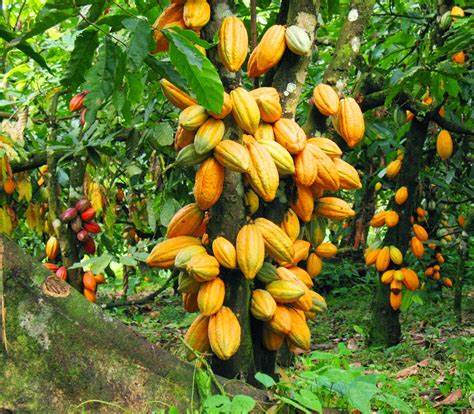Cote d’Ivoire (Ivory Coast in English), according to history, was a hub for the acquisition of ivory- one of the precious commodities centuries ago—before its ban in the late nineteenth century. The African elephant was its source which led to its being endangered. This was how in part the country got its name. The elephant remains a national symbol.
The country is in southern West Africa on the Gulf of Guinea, bordered in the north by Mali and Burkina Faso, in the west by Liberia and Guinea and the east by Ghana. It covers an area of 322,463 km2 and a population of about 29 million. The official language is French with five other local indigenous languages namely Boule, Dioula, Dan, Ayin and Cebaara Senuyo. The religious tolerance is evidence of the fact that different religions are spread proportionally within the country with 40% Muslim, 34% Christian and 25% traditional (animist religion).
Economically, the country has been doing impressively well in recent years. It posted a post-COVID growth of 6.7% in 2022. This was down from 7.1% in 2021. Regardless, it is projected by the African Development Bank (AfDB) to grow 7.2 in 2023 and most likely maintain the figure in 2024. Inflation has been relatively low amid recent high levels in the continent. Its GDP stood at $68 billion as of the end of 2022-making it the eleventh economy on the continent.
Cote d’Ivoire is now the largest producer and exporter of cocoa beans in the world. This contributes to 15% of the country’s GDP and 50 % of its export earnings. This is a major foreign exchange earner for the country has made it a relatively prosperous nation in Africa. Cocoa is a highly coveted resource that is used in the production of many beverages, chocolate bars and other products in the multibillion-dollar global confectionary industry. This engages more than two-thirds of the population and there is also high production of oil palm and coffee.
Many agricultural businesses are small, medium to large scale. It’s a venture most investors are reaping in massive profits and returns on investment. Offshore reserves of petroleum and gas have been exploited and are becoming a significant source of revenue for the country. There are other minerals like diamonds, manganese and gold from its mining sector that contribute significantly to the country’s economy. There has been a steady rise of industries and manufacturing avenues to process these resources into semi and finished goods for exportation.
There is so many business opportunities, investment and trading to be made based on the vast potential the country possesses. Also, the relative stability in the country makes business fairly good.
Indeed, Cote d’Ivoire is a hub for investors from far and near but the hurdles to being able to invest have been very herculean. The geopolitical position in the current chain of coups within the former French colonies should be not ignored. The country’s democracy is an illiberal one. Also, due to blatant acts of corruption, embezzlement and mismanagement of state coffers and funds inequality is still a challenge.
Security Issues:
Though geopolitically stationed around junta-ruled countries like Mali, Burkina Faso and Niger, it has relatively no active militant or resistance force. However, there have been protests, demonstrations and to a degree mobs that have been intermittently organised by the people to lay bare their extremists on the state and management of the economy. Mostly peaceful, some have reached boiling points to where the police have had to come in to stabilise the situation.
Notable, however, is the rise of violent extremism in the Sahel that has affected littoral states like Cote d’Ivoire. The country has recorded several terror attacks in recent years. Even though these attacks have mostly been in the North, in 2016, extremists attacked the country’s financial capital on the Atlantic coast.
Also, the decision by the President to run for a third term in office after serving two terms is potentially destabilising. With the opposition boycotting the elections, the domestic legitimacy of the government is in question.
Verdict:
It is one of the most urbanized countries in West Africa with more than half of the people living in the cities. In terms of infrastructure and other social services, the country has done relatively well It is the third largest economy after Nigeria and Ghana. However, the West African country needs more political inclusiveness and consensus building. The risk is moderate.
image: cocoa plant, the crop that is a major backbone of the Ivorian economy.
